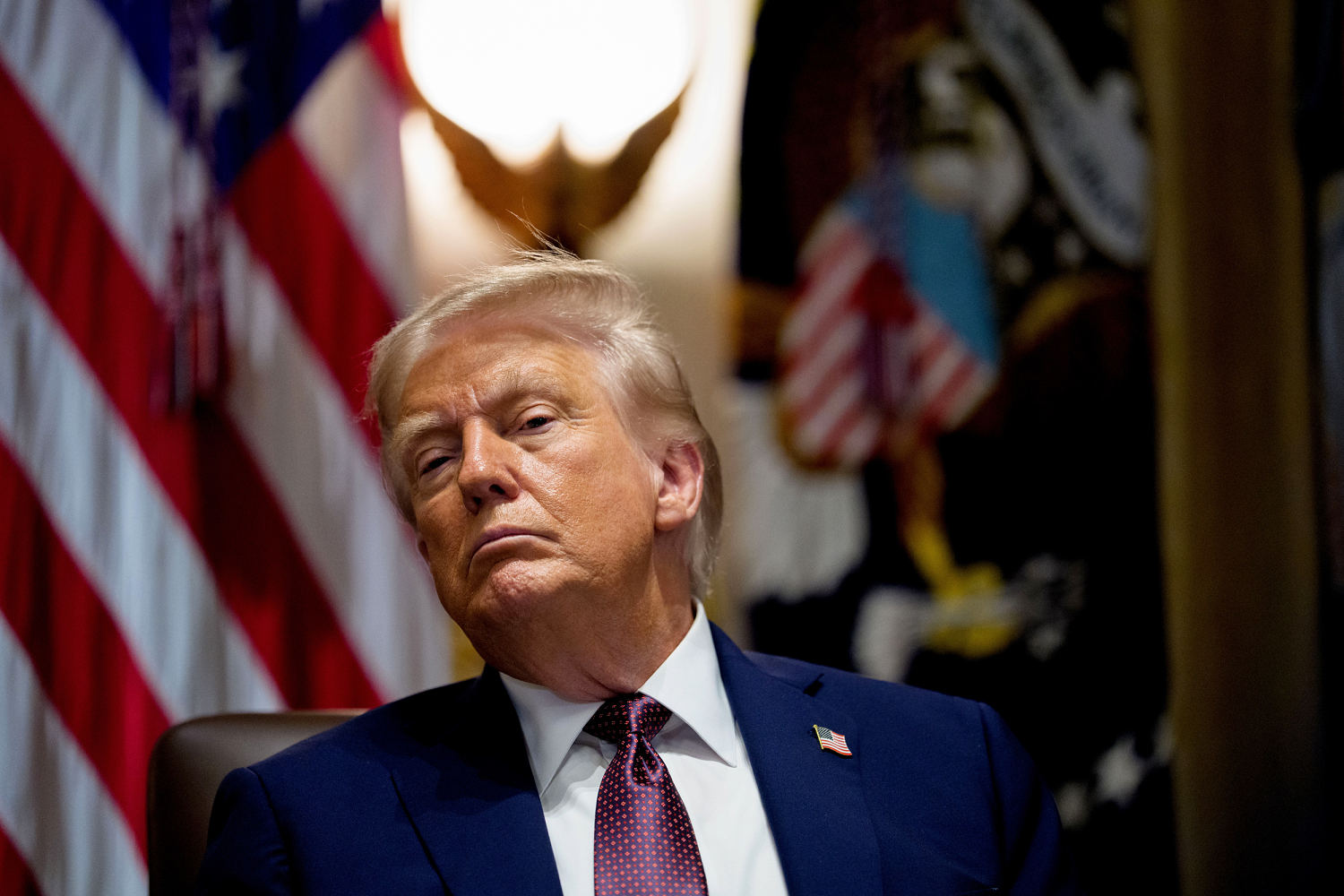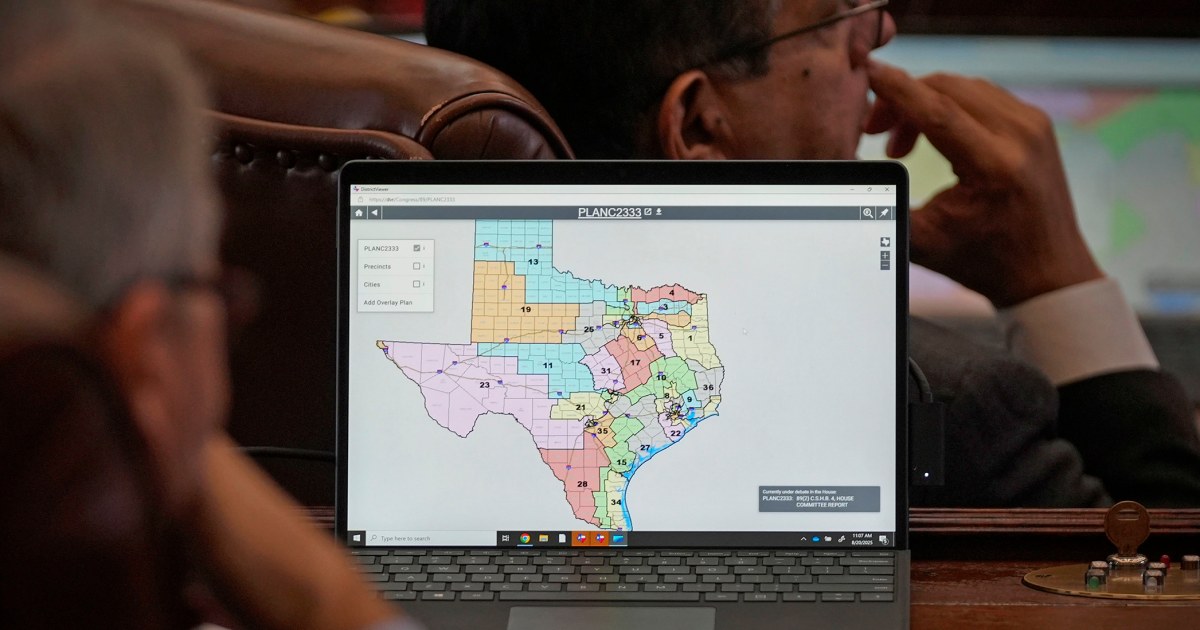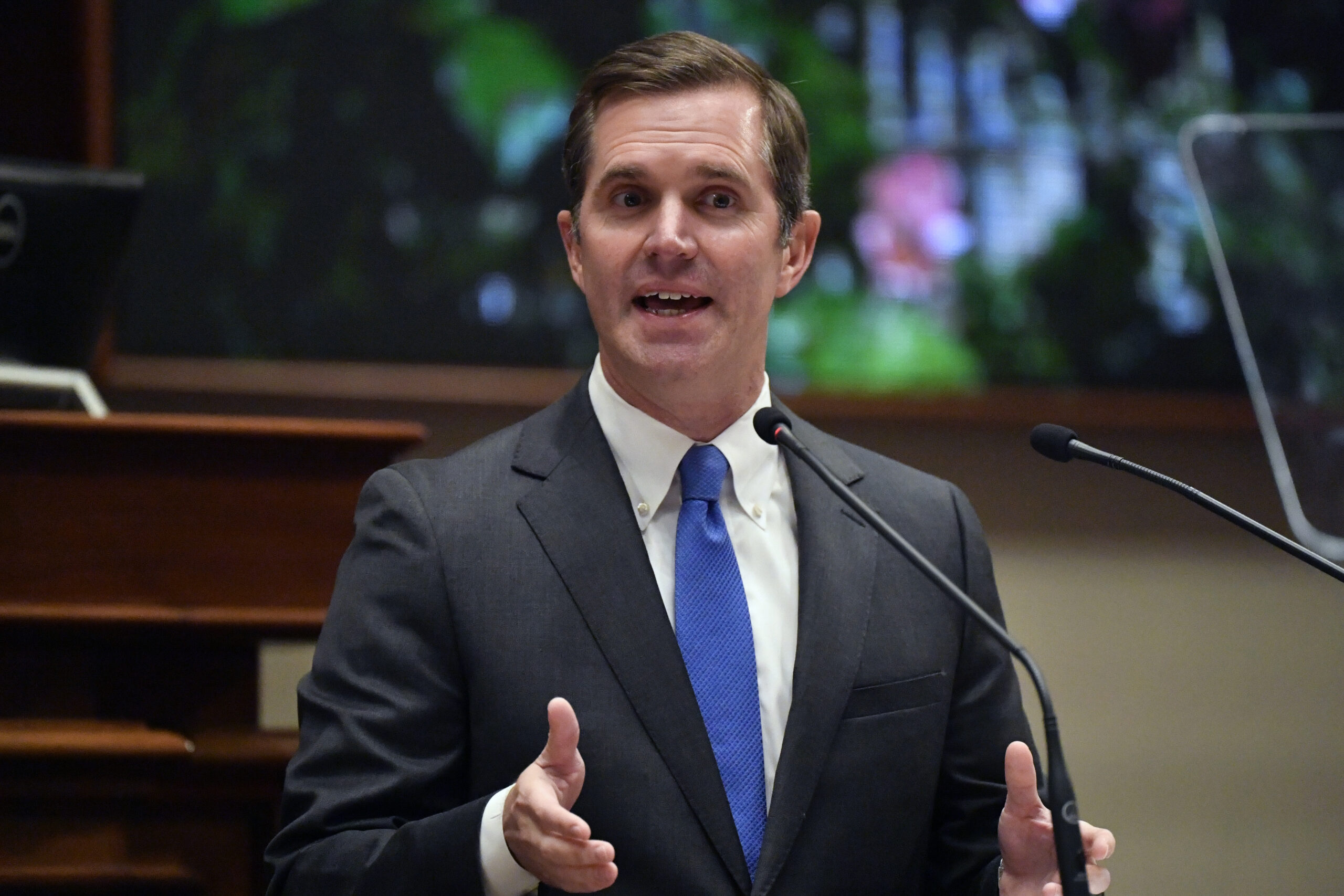
The White House informed Congress of its plans to cut $4.9 billion in foreign aid funding through a seldom-used budgetary tactic dubbed “pocket rescissions,” two congressional sources tell NBC News.
The rescissions process allows the executive branch to cancel funding or other actions lawfully approved by Congress. The process typically requires the White House to go back to Congress to ask for authorization to alter the appropriated funding. Congress approved a rescissions package in July that, among other things, canceled funding for the Corporation for Public Broadcasting.
A ”pocket rescission” is a secondary maneuver where the president attempts to cancel funding in a window of time so late in the fiscal year that there is not enough time for Congress to weigh in. Congress typically has a 45-day window to act on rescissions, but the fiscal year ends on Sept. 30, less than 45 days away.
Democrats, and some Republicans, have been vocally opposed to the tactic, and its legality is dubious at best. It hasn’t been attempted in close to 50 years and is already being challenged in court.
In a post on the Government Accountability Office’s “WatchBlog” from earlier this month, lawyers for the non-partisan federal agency wrote that pocket rescissions are not legal.
“A pocket rescission is illegal,” the post reads, adding, “Congress holds the power of the purse—approving a budget and appropriating funds.”
“A pocket rescission could allow a president to avoid spending the money regardless of whether Congress approves the rescission request. This would cede Congress’s power of the purse by allowing a president to, in effect, change the law by shortening the period of availability for fixed-period funds,” the post reads. “The Impoundment Control Act (ICA) does not provide that authority. If Congress wanted a president to have that authority, it would need to change the law.”
The rescission package announced Friday by the White House includes $3.2 billion in cuts to USAID, $322 million in cuts for the USAID’s State Democracy fund and cuts to hundreds of millions of dollars in funding designed to support peacekeeping activities around the world.
The New York Post was the first to report the news of the pocket rescissions package.
In a post on X, the White House Office of Management and Budget on Friday morning wrote, “Last night, President Trump CANCELLED $4.9 billion in America Last foreign aid using a pocket rescission. @POTUS will always put AMERICA FIRST!”
In a statement, Sen. Susan Collins, R-Maine, staunchly disagreed with the president’s decision, saying, “Any effort to rescind appropriated funds without congressional approval is a clear violation of the law.”
“Instead of this attempt to undermine the law, the appropriate way is to identify ways to reduce excessive spending through the bipartisan, annual appropriations process. Congress approves rescissions regularly as part of this process,” she added.
Earlier this month, Senate Budget Committee Ranking Member Jeff Merkley, D-Ore., called a pocket rescission “quite frankly, unconstitutional,” in a video posted on X by Democrats on the committee.
“Why do I say unconstitutional? Because the Constitution gives the power of the purse to Congress and then the president is supposed to execute that,” Merkley said, adding, “It’s not the normal way of doing this, it’s not acceptable.”
“No matter how they do it or what they call it, unilaterally withholding or canceling funding approved by Congress is illegal and it will devastate hard working families,” the Oregon senator added.
The video was posted days before the president notified Congress of his intent to use a pocket rescission, but Merkley promised that if Trump went through with such a move, “Along with other Senate Democrats, I will do everything I can to stop these illegal and unconstitutional funding cuts and end Trump’s power grab.”
A spokesperson for Merkley’s office did not immediately respond to a request for comment on Friday.
In July, after the Senate approved Trump’s earlier proposal for a rescissions package that included cuts to public media like NPR and PBS, senators on both sides of the aisle raised concerns about the threat rescissions posed to Congress’ power of the purse.
“Congress has the power of the purse. The president has the power to enforce. In this situation, there’s a specific amount stated that will be rescinded,” Sen. Roger Wicker, R-Miss., said on the Senate floor at the time. “But this Congress will not be allowed to choose those specific cuts. That will be done by somebody in the Office of Management and Budget in the White House. And in this situation, it will amount to the House and Senate basically saying: We concede that decision voluntarily to the executive branch.”
Senate lawmakers have been out of town for most of August for recess, but a fight over government funding already loomed large over their September return to Washington, even before Trump’s decision to pursue a pocket rescission.
Government funding runs out on Sept. 30 and lawmakers will begin to return to the nation’s capital on Sept. 2.
In a statement reacting to Trump’s pocket rescission, Senate Minority Leader Chuck Schumer, D-N.Y., said that he expects Republicans to “go it alone” on government funding next month, without negotiating with Democrats.
“Today’s announcement of the Administration’s plan to advance an unlawful ‘pocket rescission’ package is further proof President Trump and Congressional Republicans are hellbent on rejecting bipartisanship and ‘going it alone’ this fall,” Schumer said.
“As the country stares down next month’s government funding deadline on September 30th, it is clear neither President Trump nor Congressional Republicans have any plan to avoid a painful and entirely unnecessary shutdown. In fact, it seems Republicans are eager to inflict further pain on the American people, raising their health care costs, compromising essential services and further damaging our national security,” the minority leader added.
The White House has attempted to slash foreign aid since Trump took office for his second term. As part of the Department of Government Efficiency’s efforts to reduce federal government spending earlier this year, Trump and his then-advisor Elon Musk attempted to gut USAID, eventually allowing the State Department to absorb the agency.








